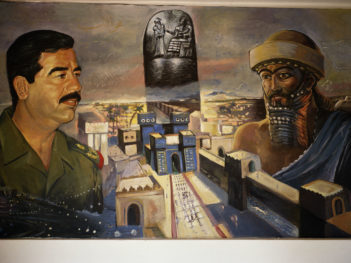
Authoritarianism

How To Lose a Country: The Limits of Democracy — with Ece Temelkuran
Author Ece Temelkuran joins Faisal Al Yafai to test the pulse of global democracy and consider the rise of fascism since her last appearance on the podcast.

How Strongmen Crush Democracies — with Ruth Ben-Ghiat
“They're ruthless. They have no moral code. They are opportunistic. They will be whatever the public needs them to be at that moment.”

When Reality Is a Lie — with Lea Ypi
What if you discovered that everything you knew about the world was wrong? As a teenager in Albania, that’s exactly what happened to political philosopher Lea Ypi when the communist regime collapsed in the ‘90s. On The Lede, she joins New Lines’ Faisal Al Yafai to talk about how to see the gap between ideology and reality, where people look for certainty in uncertain times and what it actually means to be free.

When Art and Archaeology Turn Political
New Lines contributor Olivia Snaije and contributing editor Lydia Wilson speak to Faisal Al Yafai about recent articles they wrote exploring how the Middle East’s ancient heritage continues to shape modern politics — and how the story of a nation depends on who’s telling it.

Archaeology Turns Political to Benefit a Trio of Middle East Strongmen
Both Saddam and Assad recognized the value of their countries’ archaeological heritage and adapted it to suit their interpretations of what they thought the Baath Socialist Party should be.

Technology is Handing Power Back to Autocrats
New technologies are allowing activists to document Syrian war crimes and even topple dictators. But from Iran to Tunisia to Israel to Russia, nation-states are reasserting their power. If cutting-edge digital tools have given activists new weapons, they have, at the same time, allowed governments to acquire entirely new — and secretive — digital arsenals.

In Cracking Jokes, a Satire Publication Takes Aim at Authoritarians’ Grip
Satire won’t change anyone’s mind, but it might get someone sitting on the fence to consider another perspective. Satire won’t topple thrones, but it will unsettle their occupants. It won’t change rules on freedom of speech (except maybe in the wrong direction), but it will remind people what freedom of speech looks like.
